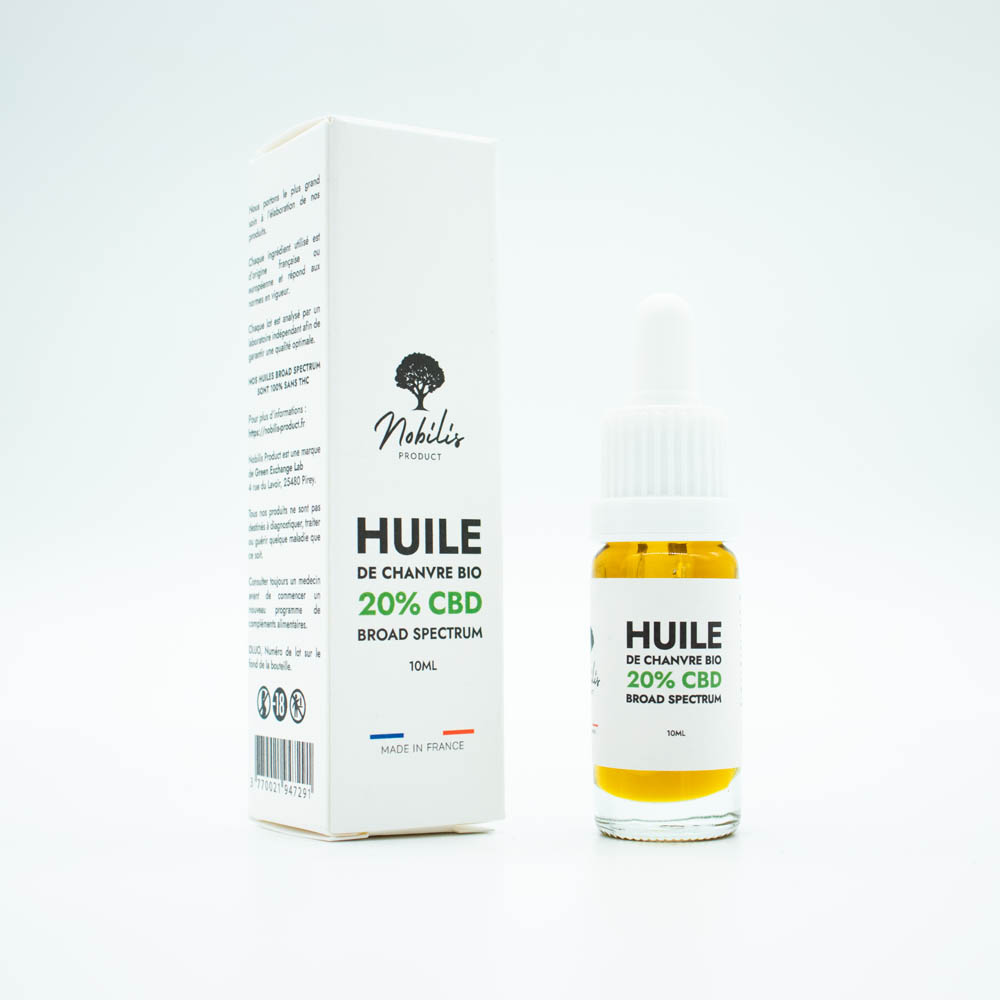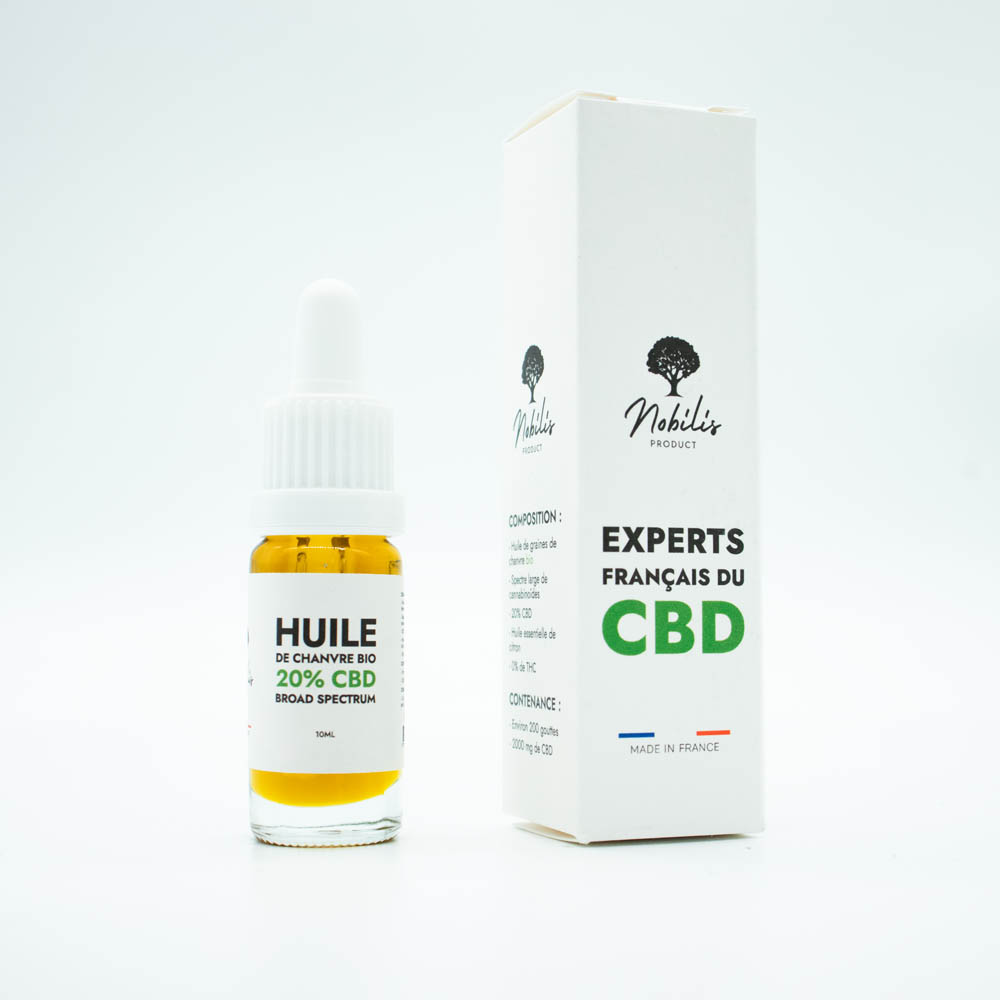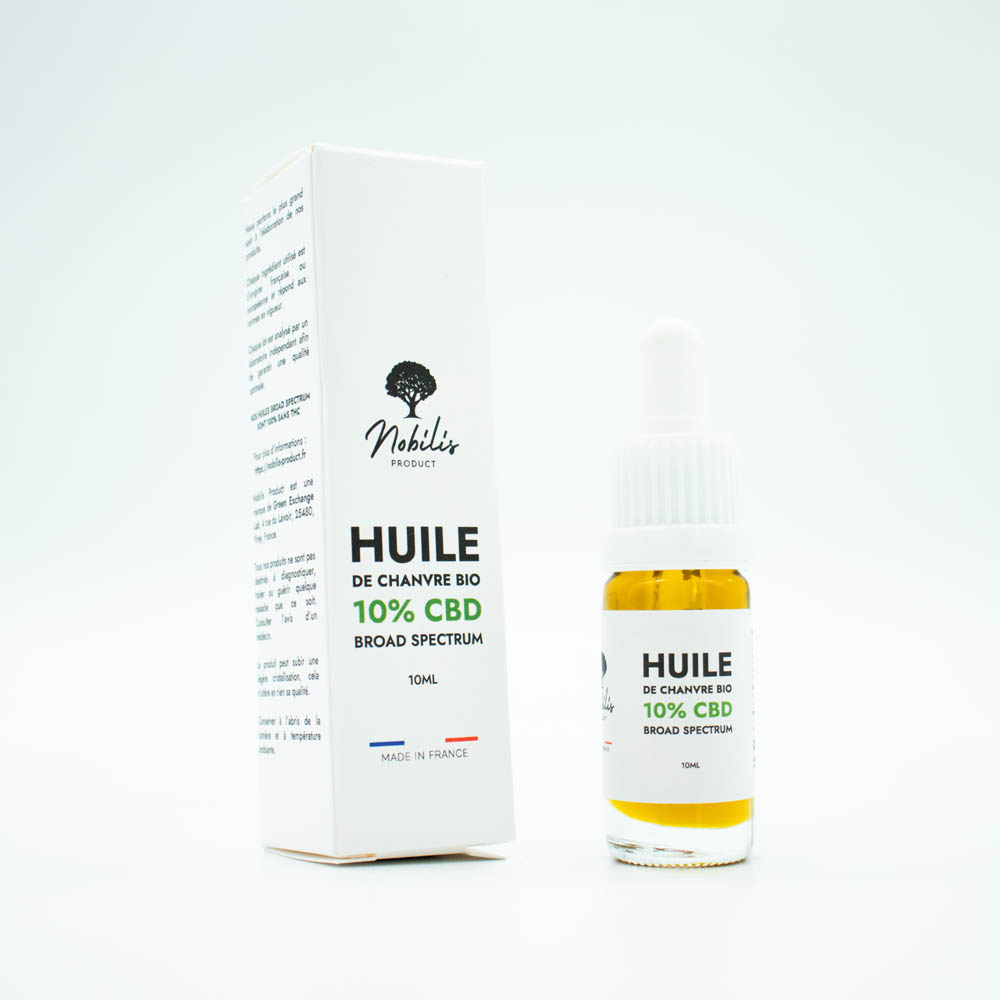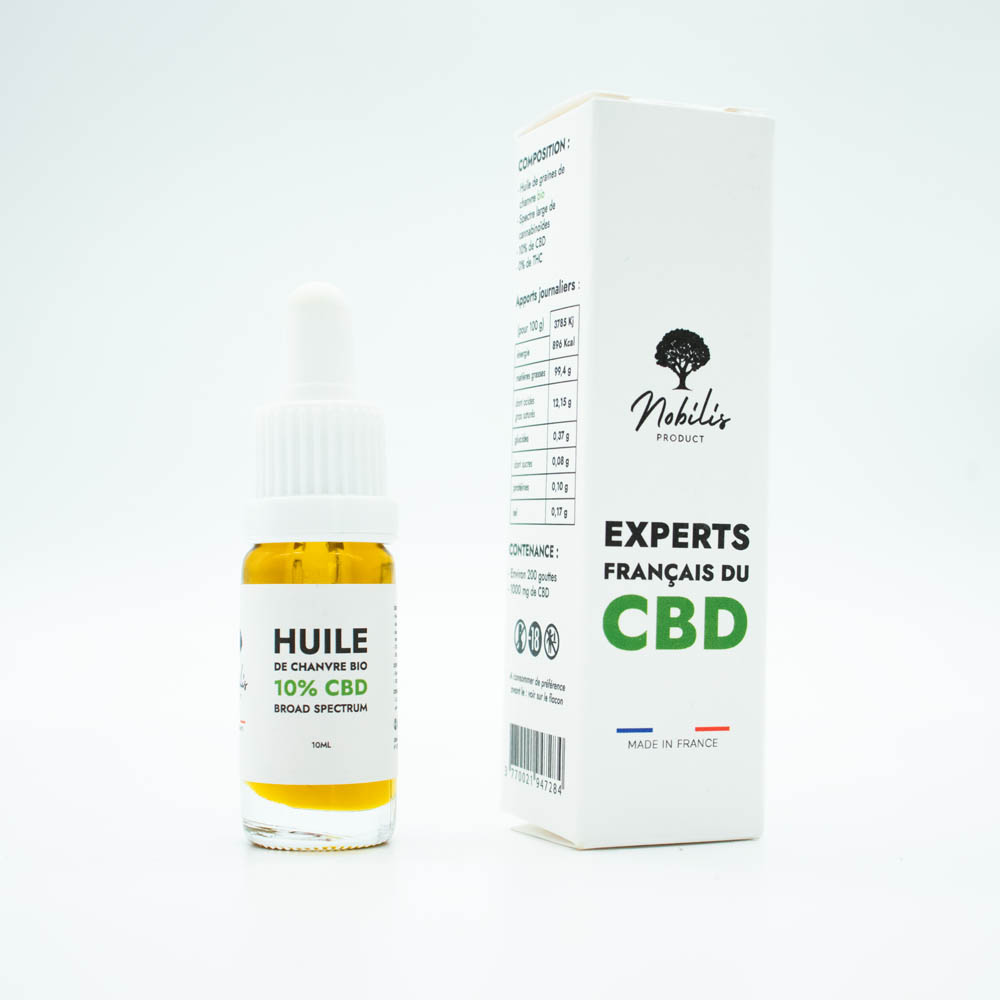More than 420 million people in the world have diabetes, and many of them are wondering on a daily basis how to improve their condition.
If opting for a healthy lifestyle seems to be the only real way to reduce the incidence of the disease, CBD products are catching the eye of more and more diabetics! Indeed, although they can't work miracles, some studies suggest several benefits. Here's an overview.
Table of contents
Diabetes: definition, causes and treatments
What exactly is diabetes?
To understand how CBD can potentially benefit people with diabetes, it's important to understand some of the disease mechanisms.
The pancreas plays a key role in regulating blood sugar levels, as it produces insulin, a hypoglycemic hormone that enables the body's cells to absorb glucose from the blood for energy.
In diabetics, the hypoglycemic action of insulin is dysfunctional. This leads to abnormally high blood sugar levels.
This malfunction has two possible causes:
- Or the body doesn't synthesize insulin because the immune system attacks and destroys the pancreatic beta cells responsible for its production. This is known as type 1 diabetes, or insulin-dependent diabetes.
- Or the insulin produced by the pancreas is unable to regulate blood sugar levels, because the body's cells have become resistant to it and cannot capture the sugar in the blood. This is known as type 2 diabetes, or insulin-resistant diabetes. This is the most common type of diabetes, affecting 90% of sufferers.
What causes diabetes?
Diabetes is generally genetic in origin. Indeed, if a parent is ill, then the child has a 40% chance of developing diabetes too.
However, the causes of the disease are multifactorial and depend on the type of diabetes.
- Type 1 diabetes is the result of an autoimmune disease. As mentioned above, it occurs when the immune system attacks and destroys the insulin-producing cells of the pancreas, leaving the body unable to regulate blood sugar levels naturally. Although it can appear at any age, it most often begins in childhood.
- Type 2 diabetes, on the other hand, is strongly influenced by lifestyle factors, notably obesity, unbalanced diet and lack of physical activity. This type of diabetes generally manifests itself after the age of 30.
What about treatments?
Treatment depends on the type of diabetes.
Indeed, people with type 1 diabetes must control their glucose levels and inject insulin several times a day to maintain normal blood sugar levels.
As for people who have developed type 2 diabetes, they generally don't need to inject insulin, but they do need to take anti-diabetic drugs (dapagliflozin (FORXIGA) or empagliflozin (JARDIANCE)) which promote the elimination of glucose through the urine. They must also adopt a healthy lifestyle: a balanced diet low in sugars, regular exercise, quitting smoking, etc.
Although most diabetics can lead a fairly normal life despite sometimes invasive treatment (particularly for type 1 diabetes), the disease can lead to a number of serious physical complications, including blindness, skin wounds caused by loss of sensitivity, neuropathic pain, kidney failure and more.
Potential therapeutic effects of CBD on diabetes (type 1 and 2)
CBD acts on the endocannabinoid system system, whose role is to regulate various key physiological functions, including blood sugar regulation. This is why research is looking into the potential therapeutic actions of cannabidiol for diabetics.
Regulates pancreas function (type 1 diabetes)
As we saw earlier, type 1 diabetes is caused by a malfunction of the immune system: it attacks the cells that produce insulin.
According to a study carried out on mice [1], daily intake of CBD helps reduce inflammation in the pancreas, which is responsible for the destruction of beta cells (those that synthesize insulin) and hence type 1 diabetes.
Indeed, mice given 5 mg/kg of CBD 5 days a week for 10 weeks developed (induced) type 1 diabetes later than the control group, with a significant reduction in inflammatory markers such as leukocyte activation.
CBD is well known in the scientific community for its anti-inflammatory properties. In fact, it is a candidate for the treatment of rheumatoid arthritis, a chronic inflammatory disease.
Reduces insulin resistance (type 2 diabetes)
A North American study [2] carried out on a panel of over 4,000 diabetics examined the link between therapeutic cannabis use and insulin resistance.
The team observed that diabetics who used therapeutic cannabis had an average 16% lower insulin resistance than non-users. Their waist circumference was also smaller.
Therapeutic cannabis contains all the plant's active molecules, including THC.
CBD against potential diabetic complications
As we've just seen, CBD can potentially act on the causes of diabetes (type 1 and 2), which is very encouraging for the search for a cure. But some studies also suggest that CBD could act on certain common complications of the disease.
In people with type 2 diabetes, hyperinsulinemia disrupts the metabolism of fats in the liver, aggravating their accumulation in this organ, leading to hepatic steatosis, or "fatty liver".
Eventually, hepatic steatosis can progress to liver failure, which is why cannabidiol is so interesting. Indeed, a study conducted on rodents [3] concludes that CBD intake restores liver function.
The same study also highlights its potential benefit on cognitive functions, notably via regulation of levels of 5-HT (aka serotonin), a neurotransmitter that plays an essential role in the regulation of numerous neurological and physiological functions such as mood and cognitive functions.
This regulatory action of CBD on serotonin levels may be worth exploiting in diabetics, who are more susceptible to mood disorders such as anxiety, stress and depression. Moreover, the normalization of serotonin levels promotes better quality sleep, reducing the risk of sleep apnea, another complication commonly caused by diabetes.
CBD to prevent diabetes?
As we have seen, diabetes is partly due to a genetic predisposition. However, several environmental factors increase the risk of developing the disease. And CBD could have a positive effect on at least two of them.
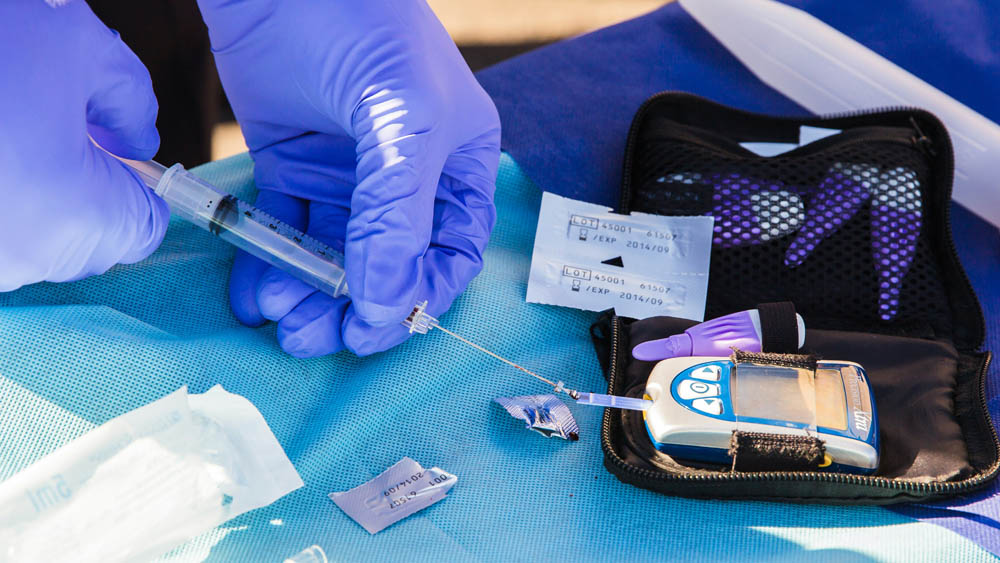
Regulates body functions
Like Dr. Ethan Russo, some experts believe that chronic diseases such as diabetes are the result of endocannabinoid deficiency.
Endocannabinoid deficiency refers to a drop in the body's natural levels of endocannabinoids, which are compounds produced by our endocannabinoid system (anandamide and 2-AG) and whose role is to regulate certain physiological functions such as blood sugar levels.
Thus, endocannabinoid deficiency can be associated with insulin resistance and metabolic problems, which can predispose to the development of type 2 diabetes.
Indeed, when the endocannabinoid system is out of balance, it may not function effectively to regulate these metabolic processes, which can promote insulin resistance and progression to diabetes.
Some studies suggest that taking cannabinoids such as CBD helps stimulate the endocannabinoid system and boost endocannabinoid synthesis.
However, it's important to note that research into endocannabinoid deficiency and its link with diabetes is still ongoing, and much remains to be learned about the mechanisms underlying this association.
Reduces the risk of obesity
Obesity is one of the risk factors that CBD intake can potentially curb. Indeed, as we have seen, its affinity with the endocannabinoid system gives it several properties, including the regulation of serotonin levels, a hormone that also controls appetite via the reward system linked to the pleasure of eating.
Its action on mood disorders may also prove useful in preventing obesity, given that excessive food consumption is sometimes linked to emotional imbalance such as stress, anxiety or depression.
How to use CBD for diabetes?
Although preclinical results are encouraging, taking CBD is not a substitute for appropriate treatment. Furthermore, it is important to seek the advice of a healthcare professional before starting to take CBD to prevent any complications or drug interactions.
What type of CBD?
-
Broad Spectrum 20% CBD Oil - THC-free
Rating 5.00 out of 529,90 €Opt for our Broad Spectrum 20% CBD oil, a higher concentration for more powerful soothing and relaxing effects. Perfect for those seeking optimal relief from the natural THC-free benefits of CBD.
Our Broad Spectrum 20% CBD oil is :
🇫🇷 Manufactured from A to Z (from hemp extraction to bottling) in our French laboratory.
🧪 Made with CBD distillate to provide all the cannabinoids except THC.
✅ Analyzed by an independent laboratory for each batch to guarantee quality
-
CBD Oil 10% Broad Spectrum - THC-free
Rating 5.00 out of 524,90 €Discover our Broad Spectrum 10% CBD oil: a gentle, natural formula that offers all the benefits of CBD, without THC. Ideal for daily use, it promotes general well-being while keeping your body in balance. This product is perfect for discovering the benefits of CBD. 10ml bottle.
Our Broad Spectrum 10% CBD oil is :
🇫🇷 Manufactured from A to Z (from hemp extraction to bottling) in our French laboratory.
🧪 Made with CBD distillate to provide all the cannabinoids except THC.
✅ Analyzed by an independent laboratory for each batch to guarantee quality.
What dosage for diabetes?
As CBD products are not medicines, there is no official dosage. However, here are a few tips for consumption:
- Consult a physician. As already mentioned, there may be a risk of drug interaction. In addition, CBD is metabolized by the liver, which may be a contraindication for diabetics;
- Do not exceed the maximum dose of 1500 mg/day. Studies have shown that CBD is safe below this level;
- Start with a low dose and gradually increase until you achieve the desired results.
Finally, it's important to remember that CBD is not a miracle product, and will have no beneficial effect unless taken in conjunction with a healthy lifestyle.

